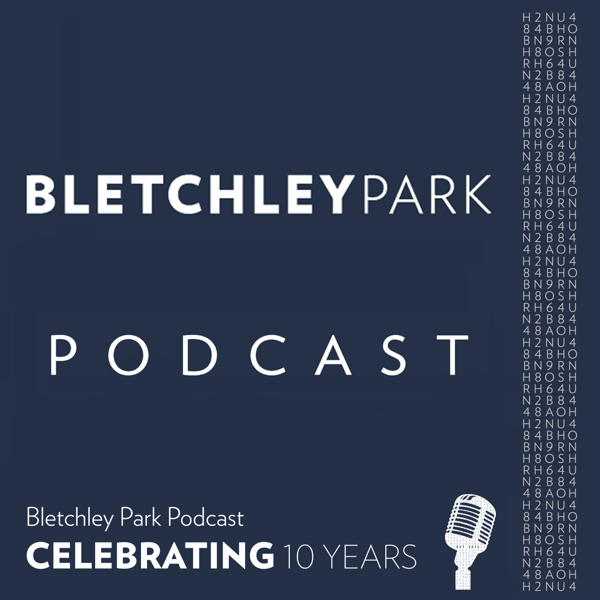Extra - E05 - Jack Copeland Part 1
Bletchley Park
Bletchley Park
4.8 • 177 Ratings
🗓️ 24 September 2012
⏱️ 22 minutes
🧾️ Download transcript
Summary
Image: ©shaunarmstrong/mubsta.com
Transcript
Click on a timestamp to play from that location
| 0:00.0 | The |
| 0:07.0 | The From the home of the co-breakers and the birthplace of modern computing, this is the Bletchley Park podcast. |
| 0:36.9 | Hello, this is M.C. Fontaine, welcoming you to another Bletchley Park podcast Extra. |
| 0:42.1 | This week, we return to the Turing Education Day. |
| 0:45.2 | The next talk, which will be spread over the next two weeks, is given by Professor Jack Copeland. |
| 0:49.8 | This first part concentrates on Alan Turing's early work and the Bond machine, which was used |
| 0:54.3 | to break Enigma. |
| 1:02.7 | I'm glad to hear they're ringing the bells for Turing, but I wish they'd stop on the |
| 1:06.6 | hole. |
| 1:07.6 | Great to see you all here. |
| 1:09.5 | Thank you all for coming. |
| 1:10.5 | I hope you're enjoying yourselves. I'm going to |
| 1:13.2 | talk about cryptography, what happened here, Turing's role. So before picking up the |
| 1:18.7 | Lechley Park story, let me go back a few years to the University of Cambridge. So Turing was a shy, boyish |
| 1:25.8 | looking genius studying mathematics at King's College, Cambridge. |
| 1:30.3 | He was researching a very abstract problem in the foundations of mathematics. |
| 1:35.3 | And while he was working on that problem, he managed to invent, kind of completely by accident, |
| 1:40.3 | the fundamental logical principle of the modern computer. Nobody could possibly have guessed that anything of any practical value whatsoever |
| 1:50.0 | would come from that abstruse research of Turin's, let alone a machine that would change all our lives. |
| 1:56.0 | I guess everyone knows, well if you can operate a personal computer, you know, that the way to get the machine to do the job that you want, word processing, say, is to locate the appropriate program in memory and click on it. That's called the stored program concept. And essentially, that was what Turing invented in Cambridge before the war. He described a machine that he called a universal computing |
| 2:19.0 | machine and he showed that by changing the program in memory, this machine could be made |
| 2:25.2 | to run any program that could possibly be written. This was all on paper. There was no engineering |
... |
Please login to see the full transcript.
Disclaimer: The podcast and artwork embedded on this page are from Bletchley Park, and are the property of its owner and not affiliated with or endorsed by Tapesearch.
Generated transcripts are the property of Bletchley Park and are distributed freely under the Fair Use doctrine. Transcripts generated by Tapesearch are not guaranteed to be accurate.
Copyright © Tapesearch 2025.

